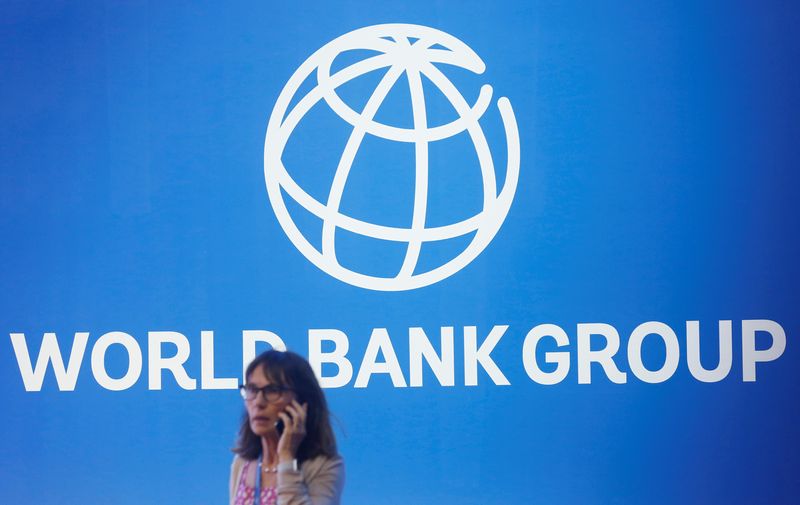
© Reuters. FILE PHOTO: A participant stands near a logo of World Bank at the International Monetary Fund – World Bank Annual Meeting 2018 in Nusa Dua, Bali, Indonesia, October 12, 2018. REUTERS/Johannes P. Christo
FOE
+0.00%
Add to/Remove from Watchlist
Add to Watchlist
Add Position
Position added successfully to:
Please name your holdings portfolio
Type:
BUY
SELL
Date:
Amount:
Price
Point Value:
Leverage:
1:1
1:10
1:25
1:50
1:100
1:200
1:400
1:500
1:1000
Commission:
Create New Watchlist
Create
Create a new holdings portfolio
Add
Create
+ Add another position
Close
By Xinghui Kok
(Reuters) – Growth in the developing economies of East Asia and the Pacific will accelerate in 2023 thanks to China’s reopening and economic rebound, but high inflation and household debt will weigh on consumption in some countries, the World Bank said on Friday.
The Washington-based lender in a report said it expected growth in the 23-nation region, which includes China, to pick up to 5.1%, up from its 3.5% growth last year.
The stronger forecast was due to China’s reopening, which the World Bank expects will help its economy rebound to 5.1% from 3% last year.
Countries in developing East Asia and the Pacific include Vietnam, the Philippines, Malaysia, Indonesia, Thailand and Mongolia, plus island nations like Fiji, Vanuatu and Palau.
Excluding China, it expects growth in the region to moderate to 4.9% from the post-COVID rebound of 5.8% in 2022, as inflation and elevated household debt in some countries weigh on consumption.
“Most major economies of East Asia and the Pacific have come through the difficulties of the pandemic but must now navigate a changed global landscape,” said the World Bank’s vice president for the region, Manuela Ferro (NYSE:FOE).
“To regain momentum, there is work left to do to boost innovation, productivity, and to set the foundations for a greener recovery.”
The lender said the most immediate challenge was the growing division between China and the United States.
It said the most serious was bilateral restrictions on technology flows and collaboration that can reduce global access to knowledge.
“While still small compared to the advanced economies like the U.S., China has become an increasingly important source of knowledge for innovation in other East Asia and Pacific countries,” said the report.
The multilateral aid agency suggested countries reform their policies to increase growth and to take part in international agreements with both China and the U.S. rather than being part of an exclusive trade bloc.
Source: Investing.com


























